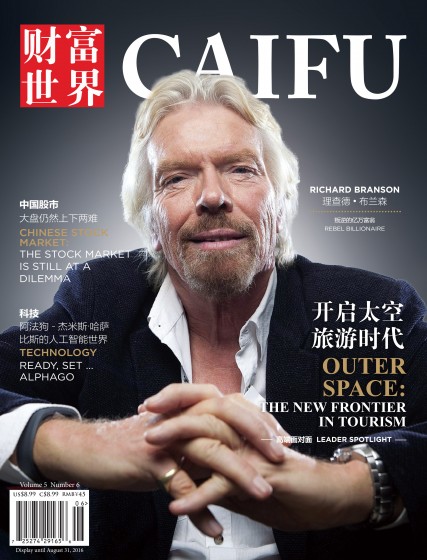The Stock Market Is Still At A Dilemma
- Caifu Magazine | by Caifu Global
- EN
The Chinese stock market in general experienced an interval of volatility in April. According to CAIFU’s stock analysis last month, a large upward pressure was enforced upon the market at 3,300 points, and there has been no sign of a breakthrough. On the other hand, there have also been protective forces against any downward pressure, therefore the index has reached a point of dilemma.
From the macro perspective, the slow-down of China’s economic growth has been eased in the short term. China’s GDP has a growth of 6.7% in the first quarter, and the economic data have indicated a significant improvement in March. One important factor is that the real estate market has recovered, thus boosting related investments. However, it is still uncertain how long this economic upturn led by the real estate boom will last.
Due to the stabilized short-term economy, monetary easing policies like the first quarter of last year will not be implemented, but monetary policies will also not be tightened. Benefiting from the central bank’s easing policies, financial institutions released 4.61 trillion yuan in new loans, and at the same time private lenders released 6.59 trillion yuan new in loans in the first quarter of 2016. With such a high liquidity of funds in the financial market, the real interest rates will drop and the price of financial assets will increase.
In the first four months of 2016, China’s bond market experienced 27 credit default cases of either “unable to pay on maturity date” or “guarantor paying debt”, exceeding the total default cases of the entire year of 2015. However, the possibility of having a large scale of defaults is low, and it would happen only on a small scale. The central bank’s choices in its monetary policies are limited by the upcoming credit default peak season, therefore monetary policies will not be tightened by a big margin.
We believe the worst period for commodities has passed since the beginning of this year. The price of commodities has rebounded since the beginning of 2016, the oil futures on the New York Mercantile Exchange increased from US $26.05 to $42.99, an increase of 65.03%. In addition, the price of the gold futures on the Chicago Mercantile Exchange increased from US $1045.4 to $1239.4. The increase in commodity prices is due not only to geopolitical factors and global monetary easing policies, but also due to a delay in the raising of interest rates by the Federal Reserve.
Investors’ expectation of inflation is sparked by the increase of commodity prices and monetary easing policies, and these investors are also concerned that the central bank will implement monetary tightening policies due to the pressure of inflation. However, since the foundation of China’s economy is not stable enough, the central bank is not likely to tighten monetary policy when the issues of inflation and maintenance of economic growth co-exist.
The US dollar did not go up as many investors expected in the beginning of this year. The US Dollar Index at one period fell to 92 points, and a strong US dollar is unlikely to be sustainable in the short term. This will lead to the price of commodities increasing further, and the pressure of RMB’s depression will be relieved. However, with the increase of China’s domestic inflation, another wave of RMB depreciation will come sooner or later.
The economic perspective is still mixed and complicated, but the delay of the implementation of the registration system sends out a signal that the management level is determined to maintain a stable stock market. The “stability maintenance fund” was injected into the stock market led by Central Huijin Investment Ltd. and China Securities Finance Corporation Ltd., in order to stabilize the market since June 2015. Central Huijin had increased holdings of shares up to 1,117 listed companies, and recently it has also been supporting the market behind the curtain.
Despite the forces to stabilize and support the market in the short term, the factors that are hindering the upward trend are that many stocks are still over-valued, and more importantly, the stock market has lost its popularity. The stock market crash in June 2015 is still haunting many investors, and a considerable amount of funds are locked in the stock market during its peak points, which is also obstructing the stock market to rise. Therefore, the Chinese market will still remain at a dilemma in the near future.















